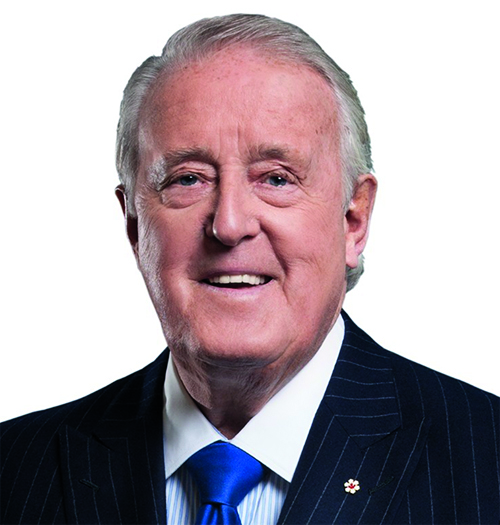The passing of Brian Mulroney at the age of 84 marks the end of a significant chapter in Canadian politics as the nation mourns the loss. As Canada’s 18th prime minister, Mulroney was a figure who earned both admiration and criticism, leading the country through a tumultuous time with a bold vision that left an indelible mark on the nation’s history.
Born in 1939 in the small forestry town of Baie-Comeau to working-class Irish Canadian parents, Mulroney rose from humble beginnings to become a statesman who deeply loved his country. His time as prime minister wascharacterized by a willingness to tackle challenging issues.
In 1984, Mulroney led the Progressive Conservative Party to a majority victory, ending the reign of Pierre Elliot Trudeau’s Liberal government. This election was seen by many pundits as a referendum on Trudeau’s legacy. The following election in 1988 marked the first time a conservative prime minister had won consecutive majorities since Sir John A. Macdonald.
Mulroney’s tenure was marked by significant achievements in foreign policy and trade. He improved Canada’s relationship with the United States, signed an acid rain treaty, and the North American Air Defense Modernization Agreement. His vocal opposition to the apartheid regime in South Africa and leadership in combating the Ethiopian famine showcased Canada’s commitment to global justice and humanitarian efforts.
One of Mulroney’s most notable accomplishments was signing the Canada–United States Free Trade Agreement (CUSFTA) and later the North American Free Trade Agreement (NAFTA). While NAFTA increased trade and economicoutput and made some consumer goods cheaper, they also led to job losses in manufacturing sectors, particularly in places like Cornwall, Ontario. The shift in the economic landscape was a double-edged sword, bringing prosperity to some and hardship to others.
Domestically, Mulroney’s efforts to bring Quebec into the constitutional fold through the Meech Lake and Charlottetown Accords were ambitious but ultimately unsuccessful, contributing to his declining popularity. The launch of the Goods and Services Tax (GST) further eroded his support. The eventual collapse of the electoral coalition with Western populists and Quebec nationalists that had kept the Liberals out of power for a decade was a significant blow to Mulroney’s legacy, dramatically reducing seats for the Progressive Conservatives in the 1993 election.
Brian Mulroney once remarked, “If your only objective is to be popular, you’re going to be popular, but you will be known as the Prime Minister who achieved nothing.” Despite losing political popularity and the 1993 election, Mulroney accomplished much during his tenure as Prime Minister.
Notwithstanding the controversies and challenges, Mulroney’s impact on Canada cannot be understated. He was a prime minister who dared to dream big and take risks, for better or worse. His policies and decisions have shaped Canada’s economic and political landscape in ways that are still felt today. As we reflect on his life and legacy, it is clear that Brian Mulroney was a complex figure – a man of great achievements and equally great setbacks. His love for Canada and his commitment to its progress will be remembered as we continue to navigate the ever-changing tides of our nation’s history.



